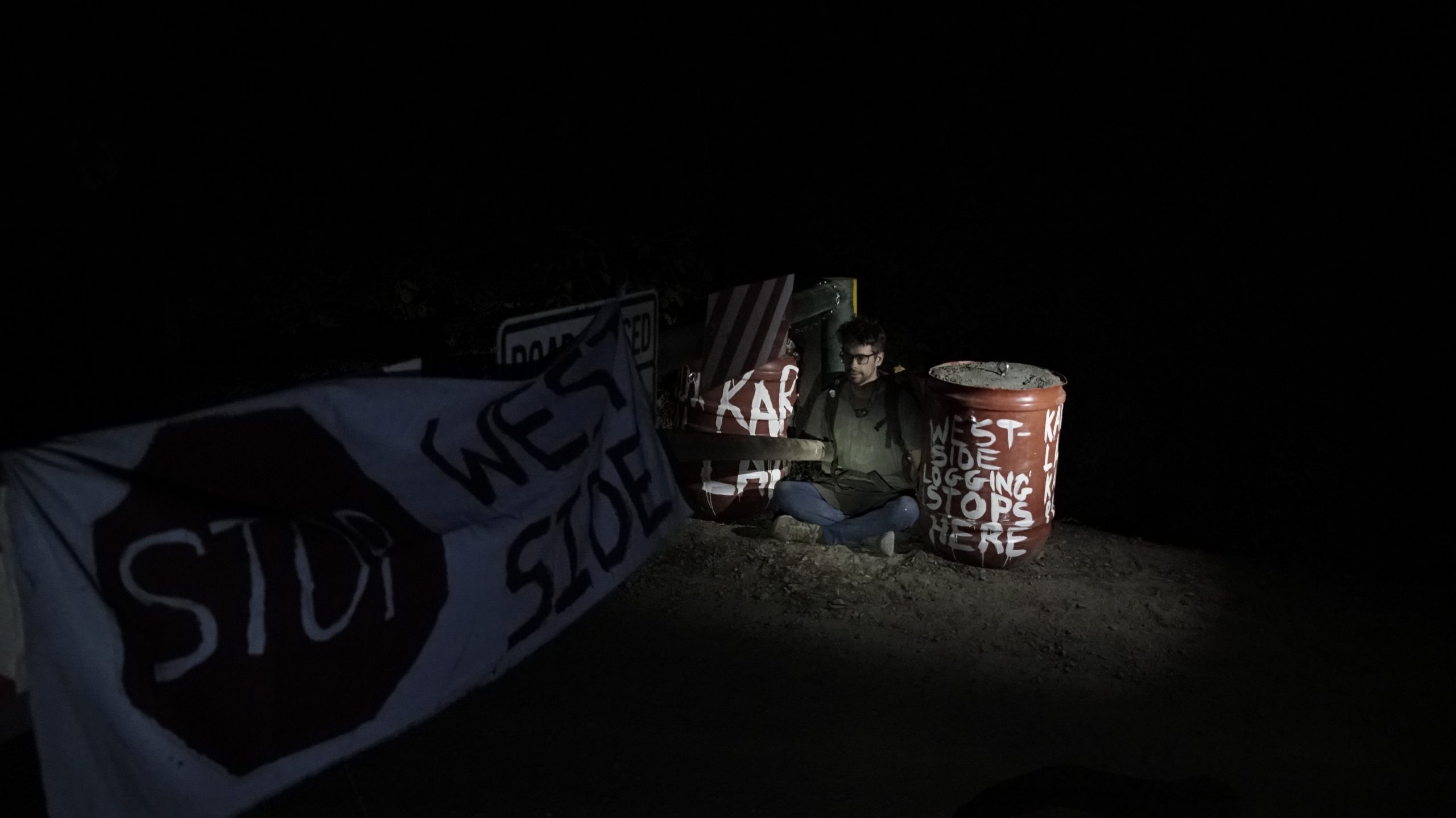Filed under: Action, Environment, Indigenous, Northwest

Submitted to It’s Going Down
Early this morning logging operations were halted on the Westside post-fire logging project after a daring activist chained himself between two 55 gallon drums filled with concrete at a gate leading into the project area. The non-violent direct action protest was the latest in campaign events triggered by continued logging despite a pending lawsuit. The group announced plans for a public rally at the same location on August 13.
Logging companies are profiting from the deforestation of public lands in the Karuk Tribe’s aboriginal territory of the Klamath National Forest (KNF). The massive post-fire logging project is in the heart of the Klamath-Siskiyou bioregion, and includes clear cuts on unstable slopes above endangered salmon bearing waterways.
“The Forest Service has given people no other choice than to take matters into our own hands to stop the logging,” said ‘Misty’ a 28-year old resident of Eastern Humboldt County. “I will sit here until the Karuk Plan is implemented, I’m not moving until then. I support Karuk management that can restore balance with fire in these forests.”
The Karuk Tribe, which has managed their ancestral lands since time immemorial, had proposed the ‘Karuk Alternative’ that would have provided marketable timber with a focus on strategic ridge-top fuel breaks and roadside hazard treatments to ensure that communities are protected and that future fire events (including cultural burns) are controllable.
The Westside Project includes logging of old-growth habitat and a take permit for 102 Northern Spotted Owls, listed as threatened under the Endangered Species Act. It also adversely affects numerous other species, including the nationally significant Caroline Creek bald eagle nest, which has served as a seed population for the entire region. The project proposes to replace this prime snag forest habitat with plantations.
”Denuding a region after a wildfire is the worst action we can take when it comes to salmon restoration,” said local fisheries expert Nathaniel Pennington. “Large woody debris that is created by fires are exactly what salmon need. The Westside Project sells this valuable material for pennies on the dollar while destabilizing slopes and contributing to the sediment problems that our salmon already face.”
Last summer debris flows within the footprint of the project clogged salmon spawning beds in arguably some of the best habitats left in the Klamath Basin.
“It’s time for the Klamath National Forest to stop prioritizing timber sales and get on board with Klamath River restoration, an effort many believe to be the biggest river restoration project in world history,” Pennington continued.
On March 3rd, 2015 the Karuk Tribe, Klamath-Siskiyou Wildlands Center, Klamath Riverkeeper, Center for Biological Diversity and the Environmental Protection Information Center filed a lawsuit in federal court challenging the Westside project, alleging that the plan illegally increased the risk of extinction for threatened populations of coho salmon. Although the lawsuit has been filed, logging has commenced, and the 9th Circuit Court of Appeals is not expected to make a decision on the case until later this year.





